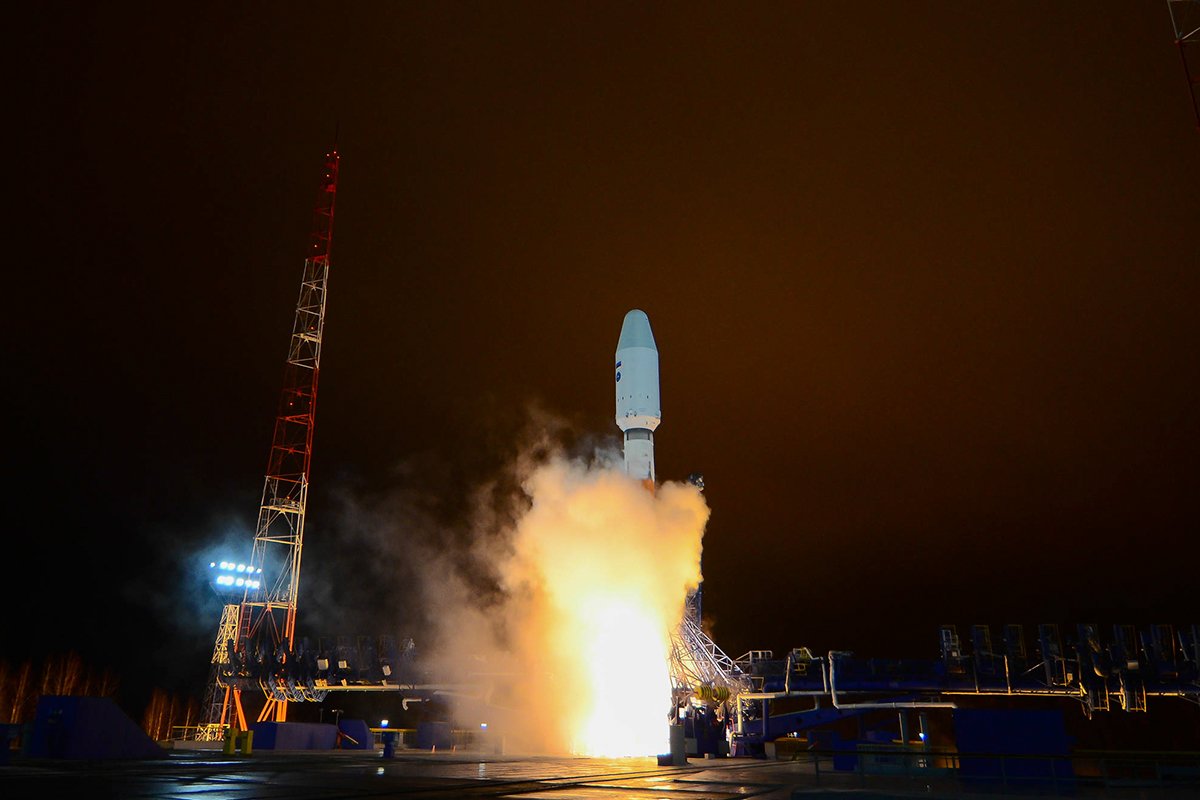Russia Launches Military Satellite in First Flight Since Soyuz Rocket Failure

The Russian space agency Roscosmos has successfully launched its first rocket since a dramatic crewed Soyuz launch abort on Oct. 11 to the International Space Station.
The launch took place at 3:15 a.m. local time on Oct. 25 (8:15 p.m. EDT on Oct. 24; 0015 a.m. GMT on Oct. 25) from Plesetsk Cosmodrome, which is located about 500 miles (800 kilometers) north of Moscow and has been used for satellite launches since 2004.
Yesterday's launch lifted a Russian defense satellite now known as Cosmos-2528, according to a Roscosmos statement following the launch, although Roscosmos has not provided any information about what the satellite will be doing now that it is in orbit.
Cosmos-2528 was blasted off Earth by a Soyuz-2.1b rocket, a cargo-only medium-class launch vehicle in Roscosmos' Soyuz family of launchers.
A different Soyuz vehicle, called a Soyuz-FG rocket, was used on Oct. 11, when an issue with booster separation caused a launch abort a few minutes into flight. That rocket is currently the only rocket on Earth certified to carry humans. (The two aboard the failed rocket were able to use the built-in escape systems safely.)
Roscosmos announced on Oct. 17 that it would require three successful robotic launches on Soyuz vehicles before returning to crewed flights, but at the time yesterday's launch had not been publicly announced. There are still five additional Soyuz launches scheduled before the next planned crew launch in December.
Email Meghan Bartels at mbartels@space.com or follow her @meghanbartels. Follow us @Spacedotcom and Facebook. Original article on Space.com.
Breaking space news, the latest updates on rocket launches, skywatching events and more!

Meghan is a senior writer at Space.com and has more than five years' experience as a science journalist based in New York City. She joined Space.com in July 2018, with previous writing published in outlets including Newsweek and Audubon. Meghan earned an MA in science journalism from New York University and a BA in classics from Georgetown University, and in her free time she enjoys reading and visiting museums. Follow her on Twitter at @meghanbartels.
